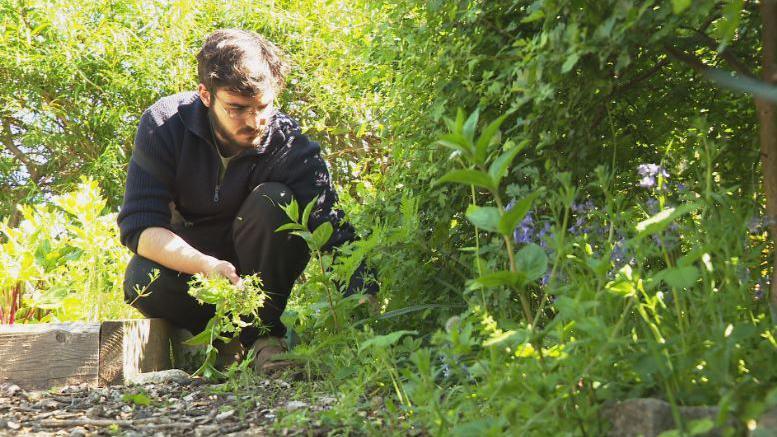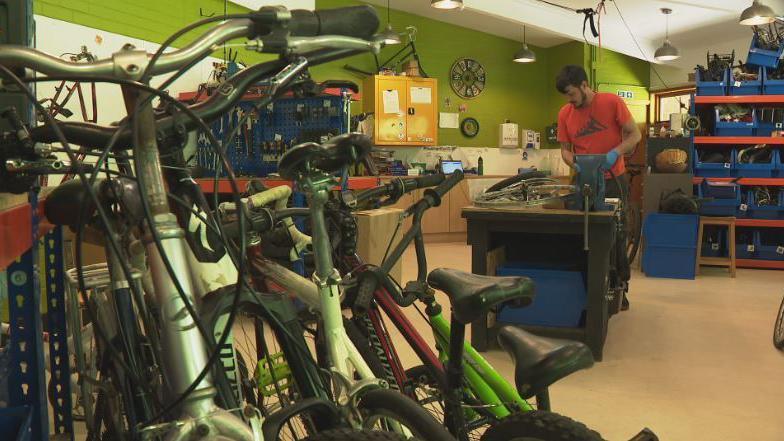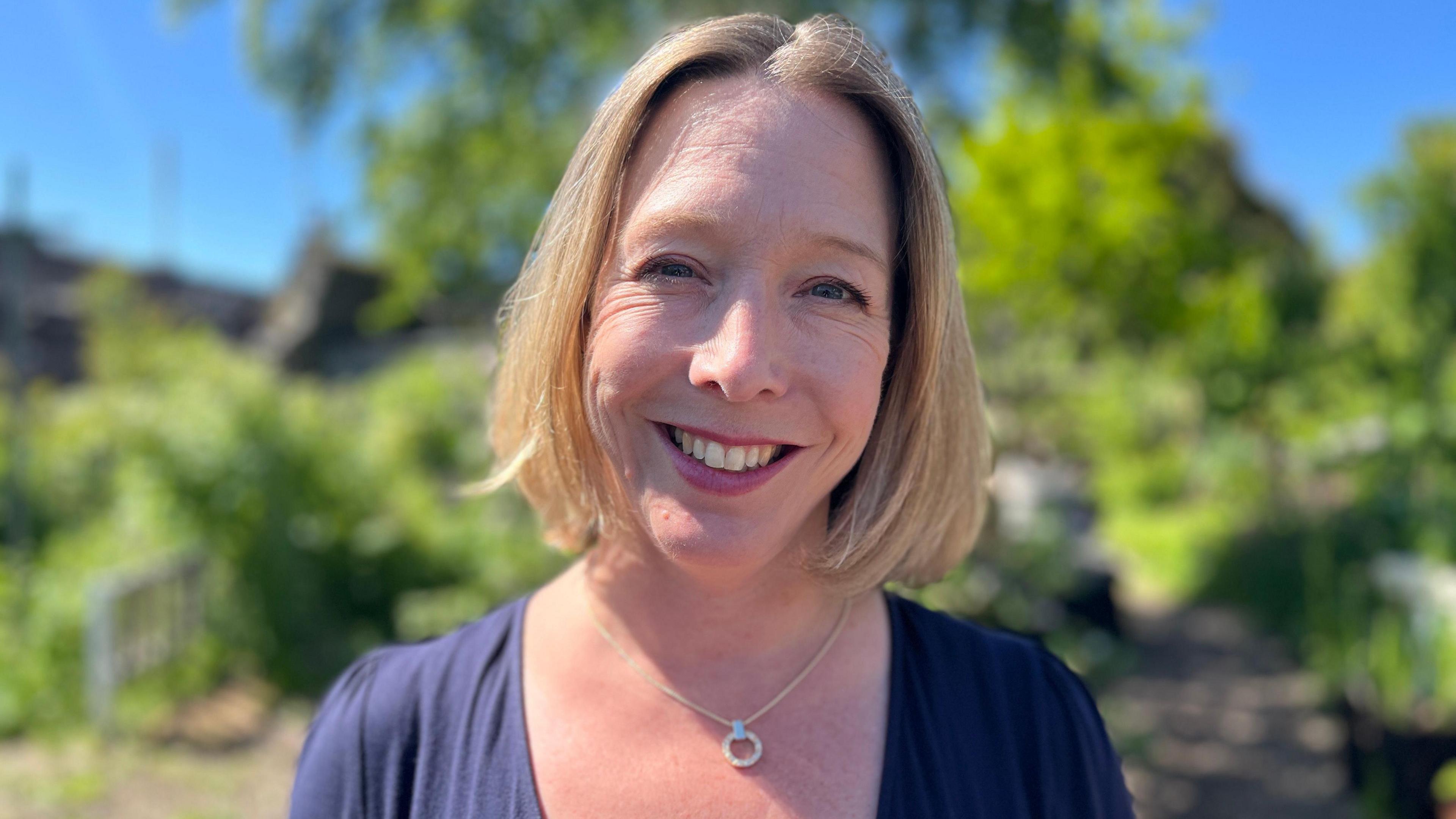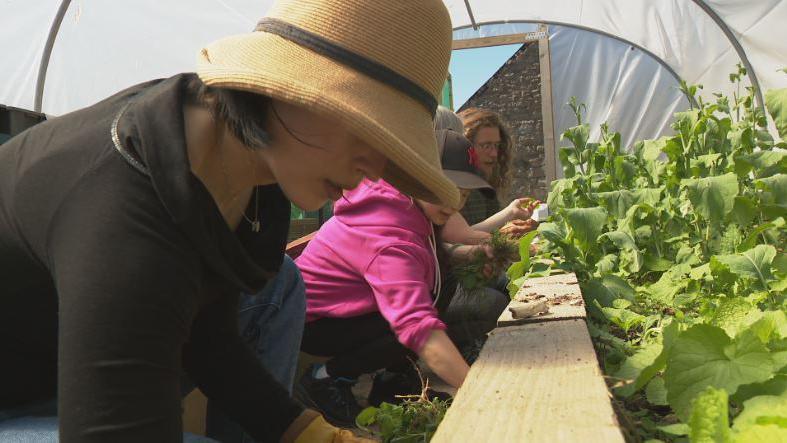How climate action hubs are driving local change

The earth and worms community garden grows food crops and wildflowers
- Published
The Scottish government has announced £5.5m to expand a network of community led climate action hubs.
The hubs are designed to encourage local action which tackles both climate change and nature loss.
The concept started more than two years ago with just two, in the north-east and Highlands and Islands. After an initial expansion last year, they're now being extended again to a network of 20.
The hubs support community actions from repair cafes to food gardens as well as climate assemblies in schools and climate literacy sessions for adults.
Some provide energy generation and flood mitigation.
Net Zero Secretary Mairi McAllan says it's important to empower people to take actions in their own neighbourhoods.
The North East Scotland Climate Action Network (Nescan) has been awarded £468,000.
It has already helped dozens of small community projects like a bike workshop at the Camphill School for students with additional support needs.

A bike workshop at Camphill School adds to the circular economy and encourages active travel
The school now runs a workshop which provides skills training for young people while preventing unwanted bicycles going to scrap.
It also encourages active travel by making them available for hire locally or passing them on through charities.
Nicolas Nino-Ramirez, sustainable development lead at Camphill, said being part of Nescan has given them access to a network of organisations who can supply bikes in need of repair.
He added: "We are able to see how, over the past two years, more people are taking up the schemes that we are able to provide."

Alison Stuart from the north east hub says people want to be involved in choosing climate actions
No measure is taken of how much the network contributes to reducing greenhouse gas emissions or mitigating against the impacts of climate change.
The Nescan hub sees itself as primarily a source of information, education and collaboration.
CEO Alison Stuart said the most important aspect of their work is that projects are conceived within local communities.
She said: "They don't just want action, they want to be involved in setting what that action is.
"They don't want it done to them, they want it done with them," she added.

The Earth and Works Community Garden in Tillydrone, Aberdeen, helps food waste by creating compost
Earth and worms is a community garden on land behind a pharmacy in the Tillydrone area of Aberdeen.
It relies on volunteers to keep down the weeds but turns food waste into compost and provides local produce.
It also grows wildflowers to help combat nature loss.
Lucy Edwards, who runs the project, said: "If there's food produced here then it's shared with practically zero food miles.
"It goes from here to the neighbouring house which is not only good for nutrition - the vegetables will be absolutely at their best - but it also saves transport costs."
The project was visited by the Scottish government's net-zero secretary Mairi McAllan, who recently announced that key climate change targets were being scrapped.
Despite the move, she insisted the government has treated climate change action as urgent since declaring a climate emergency in 2019.
She added: "We're considering matters across the piece, not just because of a new first minister but actually because of that work I need to do with the legislative framework.
"But the bottom line remains that Scotland's climate targets, when changed, will remain exceptionally stretching."